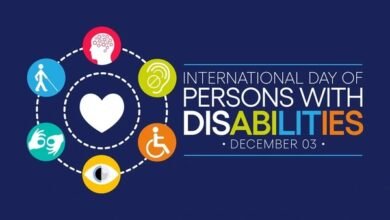Breaking the Silence: Safeguarding Childhood, Preventing Lifelong Scars

Child sexual abuse is a silent epidemic, one that thrives in shadows, guarded by secrecy, and perpetuated by our collective failure to act. It strikes at the most vulnerable among us, leaving scars that last a lifetime, and for too many survivors, justice arrives too late.
Every November 18, the world comes together to commemorate the World Day for the Prevention of and Healing from Child Sexual Abuse and Violence. This year’s theme, “Emerging Technologies: Threats and Opportunities for the Protection of Children from Sexual Exploitation and Sexual Abuse,” calls us to confront not only the dangers but also the potential of innovation to protect our precious children.
Statistics tell a heartbreaking story: one in nine girls and one in 20 boys under 18 experience sexual abuse. For these children, the violation is not just of their bodies but their futures, trust, and identity. The consequences of such trauma often persist into adulthood, coloring every relationship, every decision, and every sense of self-worth. Healing is possible, but prevention is indispensable.
Prevention is more than a strategy; it is a moral imperative. Once abuse occurs, no amount of justice, healing, or intervention can fully undo the damage inflicted on a young soul. As Mandisa poignantly shared in her memoir, Save Me from Myself, the pain of childhood abuse lingers, requiring relentless effort and faith to overcome. While healing is possible, the scars remind us of one undeniable truth: the best cure is prevention.
Abuse thrives where silence reigns. It feeds on societal taboos, unchecked power, and the absence of systems designed to protect. From clergy in cassocks to coaches in jerseys, from family members to educators, no role or relationship guarantees safety unless backed by robust, codified safeguarding policies and systems.
In Chapter 7 of Mr. Taiwo Akinlami’s book, The Burden and Wisdom of Parenting, he presents a full manifesto on how to prevent child sexual abuse through a Child Safeguarding and Protection System. His approach includes a detailed curriculum from the renowned Every Part of My Body is Private to Me®️ (EPP@2ME) program, which teaches children and their families how to protect themselves from abuse.
The book provides actionable strategies for implementing safeguarding systems at both the family and organizational levels. These systems are codified into policies or family constitutions, with clear implementation processes that involve training all stakeholders, including children. Regular reviews ensure these systems evolve alongside society’s changing needs.
Mr. Akinlami emphasizes that safeguarding cannot depend solely on authority figures, regardless of their reputation. A trusted adult in child safeguarding is one who willingly submits to a well-structured system designed to protect children. This approach ensures that safeguarding becomes a cultural norm, embedding itself into the fabric of society rather than relying on individuals alone.
For survivors, healing is a lifelong process requiring resilience, faith, and support. Healing requires therapy, strong support systems. On this World Day for the Prevention of and Healing from Child Sexual Abuse and Violence, we are reminded that safeguarding children is a shared responsibility. Prevention begins with enlightenment and thrives through intentional action, Enlightenment is Superior to Enforcement®️.
Let us commit to prevention, not as a reactive measure but as a proactive cultural norm. Together, we can create a world where every child grows up in safety, free to live, dream, and thrive without the shadow of abuse.



